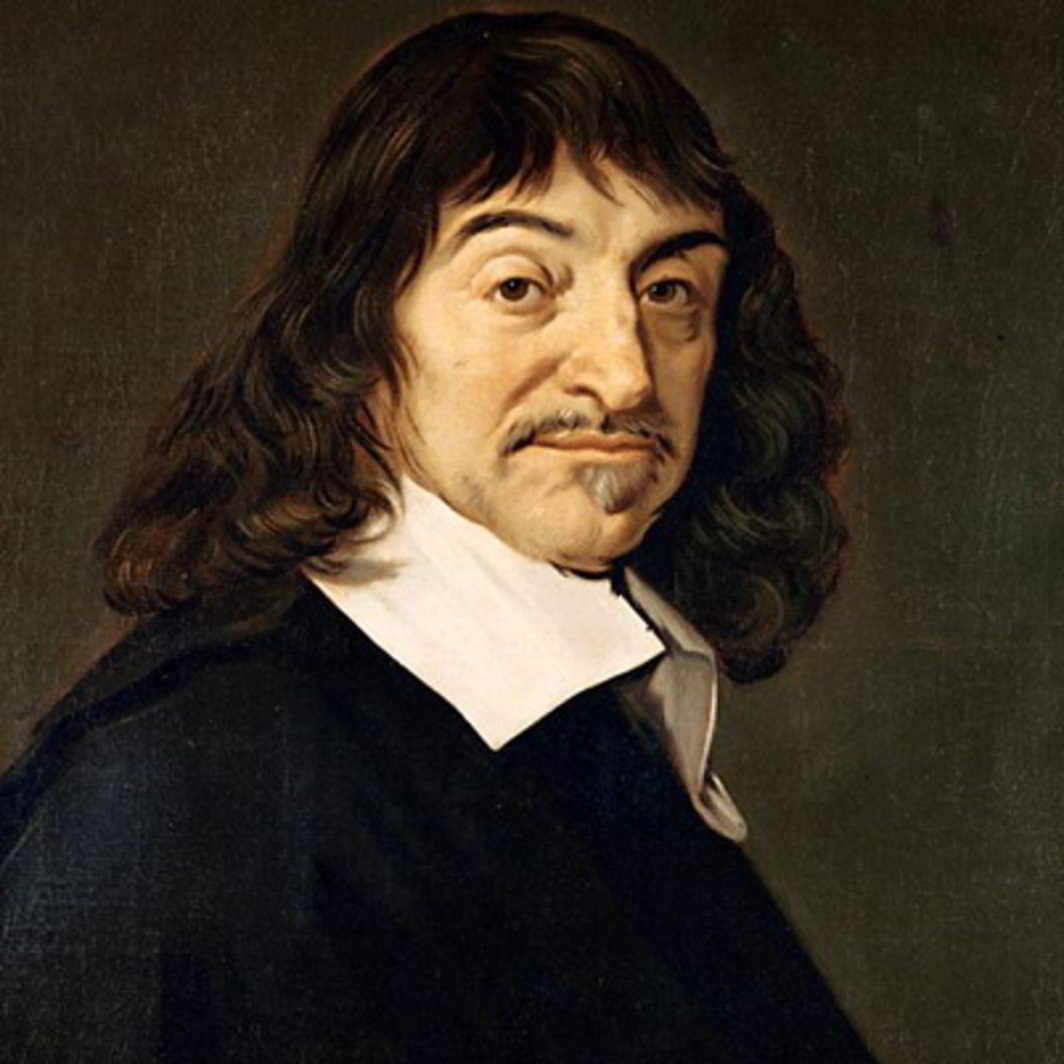Latest Art & Culture
The art of saying “Non” the French way!

[vc_row][vc_column][vc_column_text]As opposed to the polite Indian dawdle of the head when faced with the prospect of saying a hard no; the French do not dodge the opportunity of saying “mon oeil”
By Shailaja Paramathma
If you have never heard a French say “non,” you still do not know the finality which that one single word possesses. No in France means an absolute no. The nasal drawl of the “n” rings longer, almost threateningly, if you try to pursue the matter any longer. It is a no-go for further negotiation and it would be a mistake to assume that you could coax anything more from the other person once he has refused.
The argumentative French?
Why? Because before the French say no, they have discussed threadbare every possibility of an agreement and every aspect of the issue has already been viewed from innumerable angles. If Amartya Sen thought only an Indian could be argumentative, the French would have ardently argued the notion and won the discussion in the end.
Blame it on their education system or the fact that they work only 35 hours a week and get up to four weeks of paid holiday every year, but if you give the French a meaningful topic, you will in return get a solid and earnest discussion.
As opposed to the polite Indian dawdle of the head when faced with the prospect of saying a hard no; the French do not dodge the opportunity of saying “mon oeil,” literally meaning “my eye,” it’s equivalent in English being “my foot.” Mon oeil is an indignant refusal and is accompanied by pulling spitefully the lower lid of one’s eye with the index finger and glaring at the person responsible for provoking this reaction.
Past impedimenta
In fact in the French society, criticism delivered cold and hard is seen as a trait of intelligence in people and is much valued. René Descartes, the French philosopher and scientist, also known as the father of modern western philosophy wrote the famous quote of all time “Je pense donc je suis” translated into English as “I think, therefore I am” in his Discourse on the Method in 1637. The work addressed scepticism and the idea became central to the tenets of Western philosophy.
This “method of doubt” which said that the act of thinking about whether one existed was in itself proof that one did exist is applied in arguments by French people in their quest to find truth and knowledge. Making long-winding arguments, rationalising and taking time to stop and inspect all possible ways to a solution is a slow but a very addictive habit that the French possess.
The Cartesianism school of thought, as this movement came to be known later, gained sufficient popularity for the Church to label its followers as unorthodox and to oppose it. The theologian and philosopher Antoine Arnauld, one of the leading intellectuals of this philosophy is the writer of this very tongue in cheek line “Common sense is not really so common.”
Path to light
There is also the Lumières or Enlighteners in English, which was a movement that originated in France in the 18th century and soon spread throughout Europe. It rejected arbitrary authority, absolute monarchy as well as oppression on religious or moral grounds. They redefined the study of knowledge by fighting against irrationality, obscurantism and superstition. And put progress in art and science and the search for happiness high on their agenda.
The work of the Lumières had a great influence in the American Declaration of Independence and the French Revolution. The idea of the free individual, liberty for all guaranteed by the State and not decided on the whim of the government and backed by a strong rule of law are ideas that we still understand today and which were introduced to us by the writings of the Lumières.
This intellectual and cultural renewal which aimed for the triumph of reason over faith and belief and the triumph of the bourgeois over nobility and clergy is something the French are still proud of.
Every year French students in their last year of “lycée” or Secondary school sit down to a Philosophy exam where they are expected to write lucid arguments in answer to questions like—“Can a scientific truth be dangerous?” and, “Is it one’s own responsibility to find happiness?” etc.
Examples worth following
Be it the French revolution in the late 18th century, when the French said no to monarchy or the student revolution of May 1968 which overturned the social order of the day, or the French labour unions that love to protest and say no when they do not agree with something. More often than not when the French take to the streets, they force their governments to pull up their socks and clean up their acts.
In personal life, even though using the word “no” too liberally can land you in conflict situations very easily, it is fair game if what you hanker after is a structured debate. Standing your ground is viewed by several cultures as a brave act and ideally requires self-discipline to be delivered well. It is also rumoured to save one’s time on unnecessary engagements and be more productive, though in the case of the French that last bit would be inapplicable.
Finally, what we need to be on the lookout for is—will the French not lose their gumption and say as definite a no to Marine Le Pen, the presidential candidate of the French National Front, a right-wing populist and nationalist political party, when they go to vote next month, as they did to Donald Trump when he was elected president of the United States. By May 2017 we should have the answer to that.[/vc_column_text][/vc_column][/vc_row]
Entertainment
Yashraj Mukhate collaborates with Amit Trivedi for Mann Dhaaga song
In a post circulating on Instagram Yashraj Mukhate talks about his experience of listening to Amit Trivedi’s music and recalls how he had always dreamt of collaborating with Amit Trivedi. He said his dream came true 2 years later in 2024 where he collaborated with Trivedi on the song Mann Dhaaga.
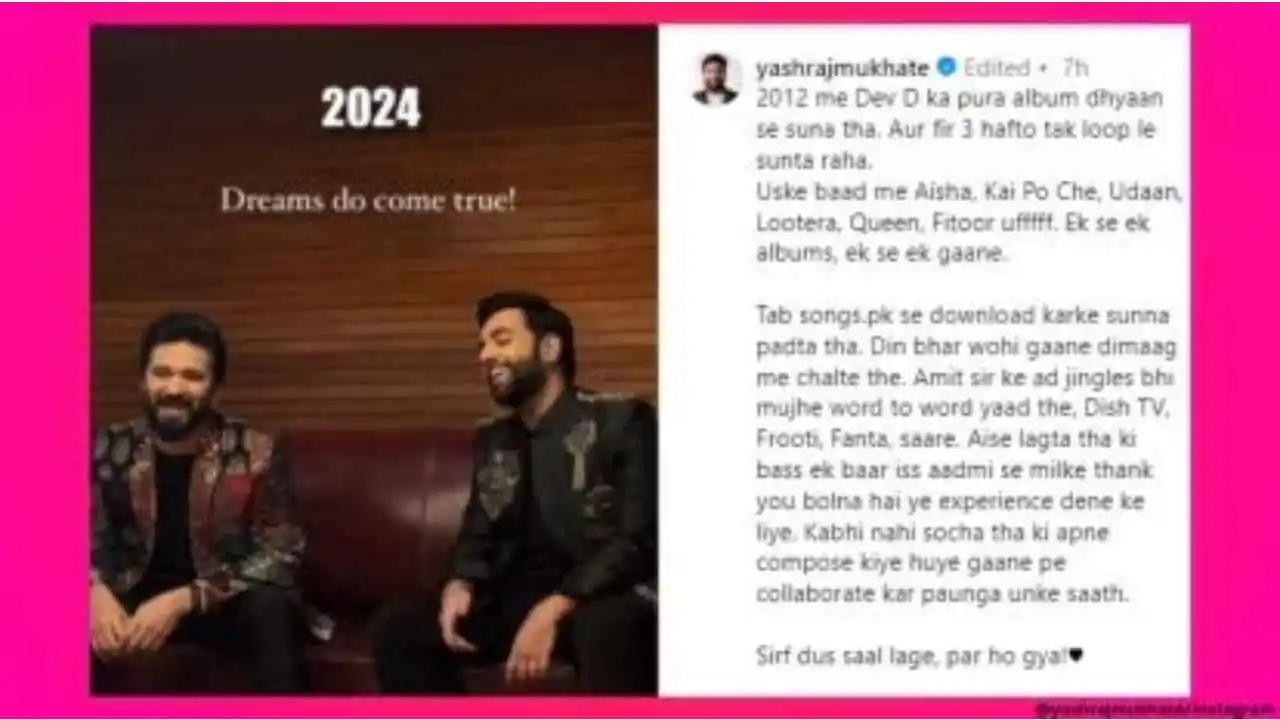
Amit Trivedi is known for his soulful compositions which weave profound lyrics, captivating music lovers. His songs spark a deep desire in aspiring artists to collaborate with him. Music producer and You Tuber Yashraj Mukhate had immense admiration for Trivedi’s artistry. In a post circulating on Instagram Yashraj Mukhate talks about his experience of listening to Amit Trivedi’s music and recalls how he had always dreamt of collaborating with Amit Trivedi.
He said his dream came true 2 years later in 2024 where he collaborated with Trivedi on the song Mann Dhaaga. He wrote that he had been listening to the entire Dev D Album carefully in 2012. And he kept listening to it on loop for 3 weeks. He continued to listen to Amit Trivedi compositions in Aisha, Kai Po Che, Udaan, Lootera, Queen, Fitoor continuously. He said he could not stop himself and became a big fan of the music director. He said he started dreaming of meeting his idol one day and collaborating with him.
He recalled that he had to download songs from songs.pk and listen to them. He said the songs kept running inside his mind all through the day. He added that he even remembered Amit Trivedi’s ad jingles word for Fanta, Frooti, Dish TV and all of them.
Mukhate said he always dreamed of meeting Amit Trivedi and wanted to thank him for giving this experience. The post has gone viral on social media with 96,445 likes till now. Large number of social media user commented on the social media post where one user Parth said the Yashraj Mukhate was truly an inspiration. One user said his dedication had brought him to level. One user said a man should make all his dreams come true by going through one hustle at a time.
Book reviews
The Sattvik Kitchen review: Relook at ancient food practices in modern times
If you are the one looking to embrace healthy food habits without compromising on modern delicacies, then this book is a must read!
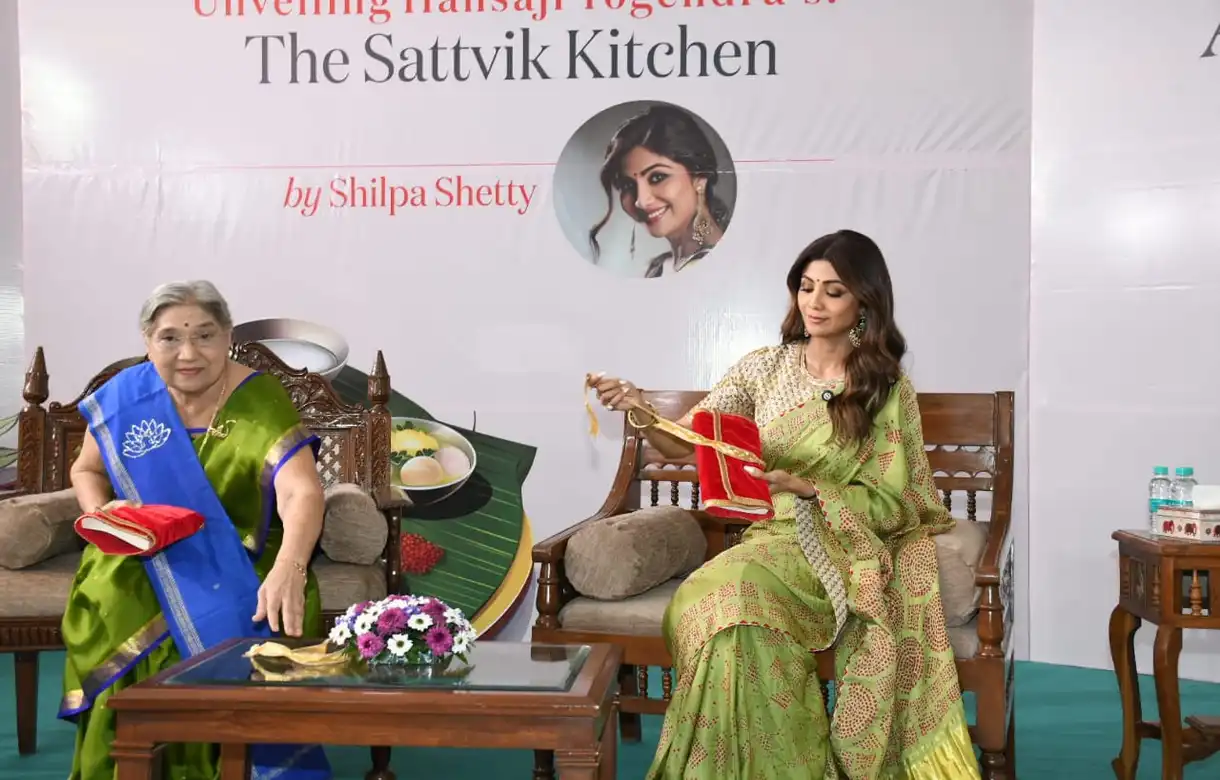
The cacophony of bizarre food combinations across the streets of India has almost taken over the concept of healthy food practices. Amid this, yoga guru Dr Hansaji Yogendra’s The Sattvik Kitchen, published by Rupa, is a forthright work that takes you back to ancient food practices and Ayurveda.
As the subtitle reads, The Art and Science of Healthy Living, the book endows a holistic approach to ayurvedic diet along with modern evidence based nutrition. From Basil-Broccoli Soup to Sprouted Green Gram Salad and Strawberry Oats Smoothie to Mixed Dal Parathas, the book not only provides you with the recipes but also stresses on healthy cooking tips together with nutritional benefits.
Besides, Dr Hansaji Yogendra’s book emphasizes on the traditional methods of food preparation and the advantages of using traditional cookwares like iron and copper vessels. The narrative portrays a balanced approach, knitting traditional wisdom with contemporary scientific understanding.
The author, through her book, sheds light on the principles of Ayurveda and highlights the metamorphic potential of adopting ancient food practices. She explains how our body reacts to food in terms of timing, quantity, manner of consumption and seasonal considerations. The book adeptly reintroduces ancient home remedies tailored to address various contemporary health issues.
Dr Yogendra, in her book, decodes the importance of nutritional knowledge to optimize both immediate and long-term health outcomes. It provides deep insights to understanding the intricate relationship between food choices and overall well-being, weaving Ayurveda with practical perception.
The book not only celebrates food philosophy but also offers a practical view into weight loss, well-being, and the profound impact of dietary choices on both physical and emotional aspects of our lives.
If you are the one looking to embrace healthy food habits without compromising on modern delicacies, then this book is a must read! The book is a roadmap to navigate the challenges of the modern day kitchens.
Book reviews
The Deccan Powerplay review: Bashing Chandrababu Naidu and his legacy
Amar Devulapalli’s book The Deccan Powerplay cornersthe TDP strongman with every petty incident exaggerated a la Baahubali
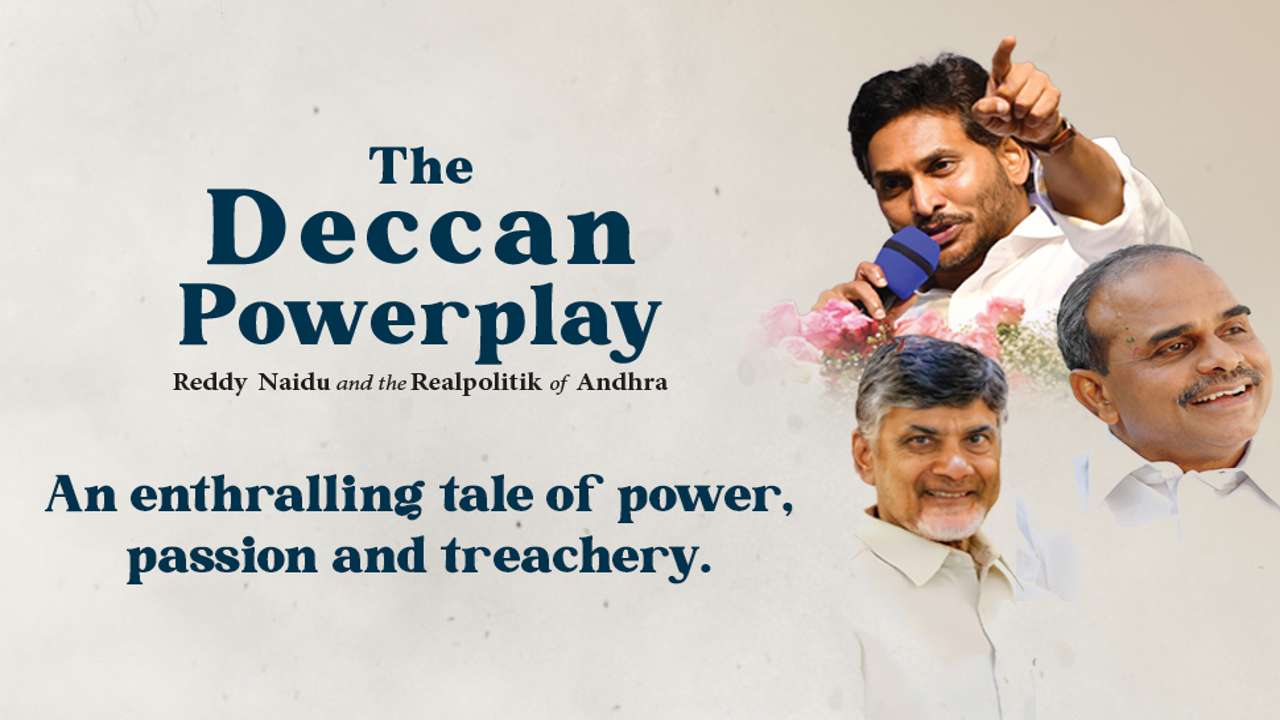
Mike Marqusee’s War Minus The Shooting is a seminal book on cricket and its influence on culture and politics in the Indian sub-continent during the 1996 Cricket World Cup. Amar Devulapalli’s book The Deccan Powerplay, published by Rupa, sounds like a similar exercise with its clear subtitle, “Reddy, Naidu and the Realpolitik of Andhra Pradesh“. The ambitious sounding subtitle crumbles under the weight of belied expectations of a scholarly treatise on the political interplay between the Reddys, the Kammas and the erstwhile united Andhra Pradesh. One can blame it on one’s own hopes and excuse the author of the lapse since the book has just three people to discuss: YS Rajsekhara Reddy, N. Chandrababu Naidu and Y.S. Jagan Mohan Reddy.
The chief protagonists here are YSR and his son, the incumbent Chief Minister of bifurcated Andhra Pradesh, Jagan Mohan Reddy. The lone villain, and one crafty as a fox if ever there was one, is Chandrababu Naidu. The book devotes a chapter to the corruption cases against Naidu, for which he was arrested in September 2023.
In crafting the narrative, the other heavyweights of Telugu country are discussed in passing, as peripheral players. N.T. Rama Rao does get the starring role, as befits the Telugu star of yesteryear and the founder of the Telugu Desam Party. But even this is fleeting. The Congress, which ruled the state till bifurcation, is portrayed as a faction-infested animal — so what if YSR stayed in the party both as loyal soldier as well as a seasoned yet dynamic general?
The book sets out to demolish the halo surrounding Naidu as the man who brought Information Technology majors to Hyderabad, nay Cyberabad, by beating Bengaluru. His breaking with NTR is depicted as a shrewd, calculated gambit to displace the TDP founder, who was also his father-in-law.
The book is replete with this and more Naidu nitpicking. Naidu took no bullshit from politicians or journalists. He gave it back to the scribes when needed, apart from his favourite media groups, one of the reasons they were not very happy kowtowing to him,
as the book suggests. Instead they would make ostentatious bows to any political alternative merely for being less brusque than the now-out-on-bail former CM.
The book picks apart every claim Naidu ever made and portrays him as an opportunist. The problem with this is possibly because Naidu preceded Jagan Mohan as the rump AP’s last CM and had presumably used every trick in his arsenal to discredit the younger contender.
With Assembly elections due this year, this book reads like a party pamphlet and comes across as a political weapon among the undiscerning. An Instagram handle could have been more useful to this end. But for such a grandly-titled book: the anticlimax is swift and painful.
-

 2024 Lok Sabha Elections16 hours ago
2024 Lok Sabha Elections16 hours agoLok Sabha election 2024: Nearly 50% voter turnout recorded in second phase till 3 pm
-
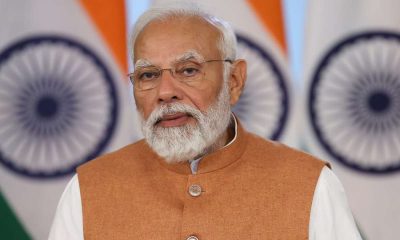
 2024 Lok Sabha Elections21 hours ago
2024 Lok Sabha Elections21 hours agoPM Modi calls for high voter turnout in second phase of Lok Sabha elections 2024, says your vote is your voice
-

 India News20 hours ago
India News20 hours agoSalman Khan house firing case: NIA interrogates arrested shooters Sagar Pal, Vicky Gupta for three hours
-

 2024 Lok Sabha Elections19 hours ago
2024 Lok Sabha Elections19 hours agoLok Sabha elections 2024: 102-year-old man walks to polling booth to cast his vote in Jammu
-

 2024 Lok Sabha Elections14 hours ago
2024 Lok Sabha Elections14 hours agoElection Commission books BJP MP Tejasvi Surya for seeking votes in the name of religion

